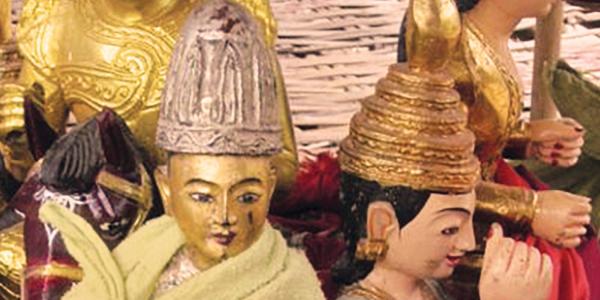Fifth Annual Robert Morrell Memorial Lecture in Asian Religions: Gods and Things in Four Asian Places
In many popular religious traditions, gods/spirits/energies become visible through their material realization in the corporeal bodies of shamans and spirit mediums and via ensouled statues, paintings, and masks. In Hindu and Buddhist worlds, such objects are produced in commercial workshops where knowing craftsmanship entangles (what we commonly call) technique with what we might (more cautiously) call magic to produce an efficacious or agentive image. In Korean shaman practice and among spirit mediums in Vietnam, Myanmar, and Bali, these statues, masks, and paintings are intended to facilitate the presence of otherwise unseen entities in ritual settings. This presentation describes a comparative project that became Dr. Kendall's recently published book, Mediums and Magical Things. It considers the fabrication and use of empowered images among shamans in Korea and spirit mediums Vietnam, Myanmar, and Bali. As a work of comparison, the discussion reveals how questions derived from ethnographic encounters in one place may yield surprising answers in another.
Laurel Kendall is Curator of Asian Ethnographic Collections at the American Museum of Natural History and Senior Research Scholar at the Weatherhead East Asian Institute at Columbia University.
image from Kendall's book cover: Mediums and Magical Things (University of California Press, 2021)
The Morrell Memorial Lecture in Asian Religions commemorates the work of the late Professor Emeritus Robert E. Morrell, a specialist in Japanese literature and Buddhism who taught at Washington University for 34 years and who holds special significance for the campus, as Morrell was the first to teach a course on Buddhism. This annual series commemorates his life work by bringing distinguished scholars of Asian religions to campus.
Cosponsored by the Department of East Asian Languages and Cultures and the Program for Religious Studies.

